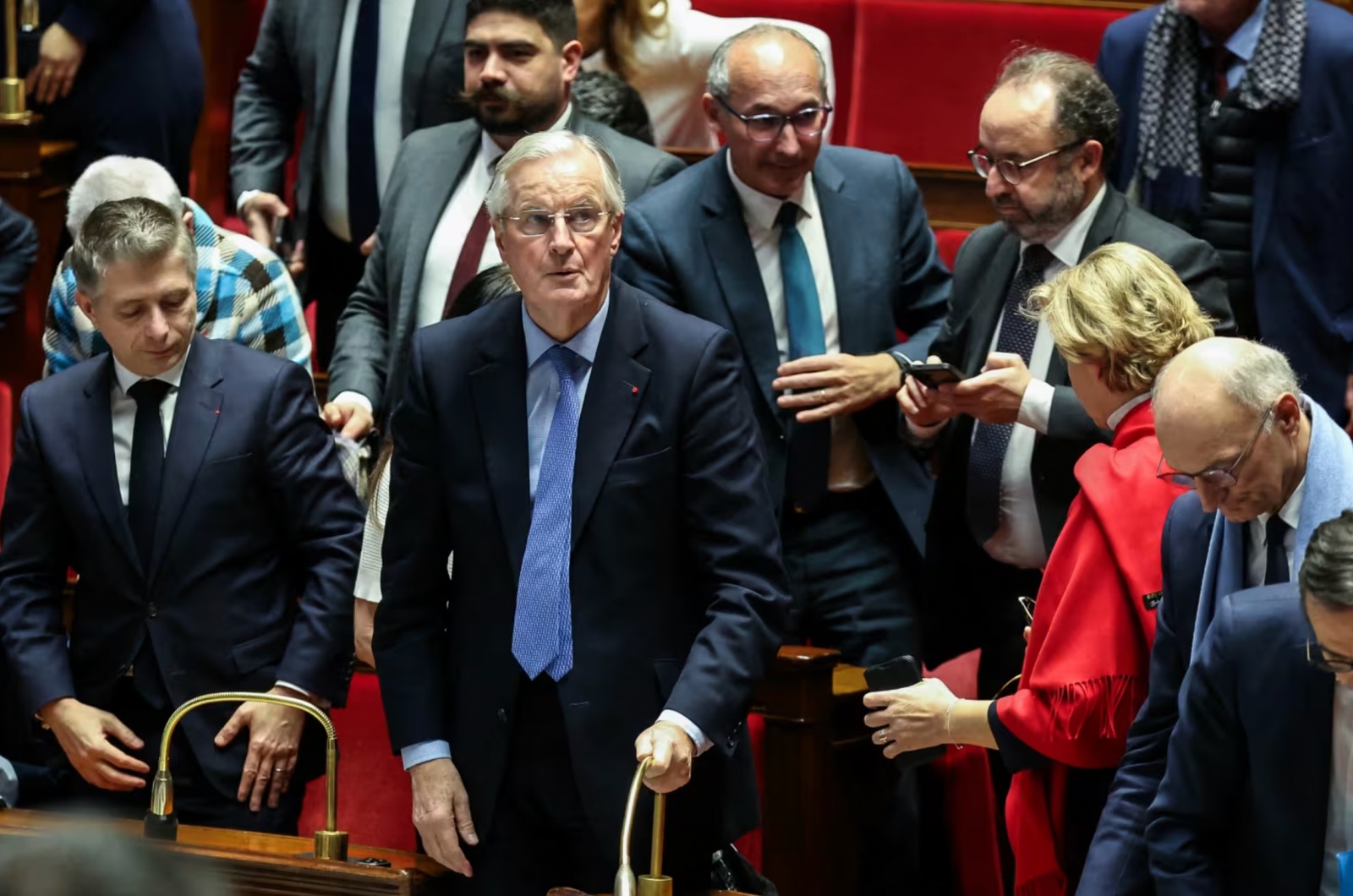PARIS, France – The French government collapsed on Wednesday, December 4, 2024, after a historic no-confidence vote in the National Assembly, marking the first such toppling of a government in over six decades.
Prime Minister Michel Barnier is now expected to tender his resignation to President Emmanuel Macron, plunging France into political turmoil.
Barnier, who had held office for just three months, faced an alliance of far-left and far-right lawmakers who combined forces to oust his government.
The no-confidence measure required 299 votes to pass but garnered a decisive 331 votes, reflecting deep dissatisfaction with Barnier’s austerity-driven fiscal policies.
Political Upheaval Unfolds
The collapse signals a period of uncertainty for France, the European Union’s second-largest economy. The last time a French government fell in this manner was in 1962.
Mathilde Panot, leader of the radical left France Unbowed (LFI) parliamentary group, celebrated the outcome, stating, “In a republic, only the people are sovereign.”
The far-right National Rally, led by Marine Le Pen, played a pivotal role in the vote.
Le Pen criticised Barnier’s budget proposal, which included 40 billion euros in spending cuts and a 20-billion-euro tax increase, as a breach of her party’s “red lines.”
“We said what were the non-negotiable elements for us,” Le Pen asserted earlier this week.
“We are straight in our political approach. We defend the French people.”

Macron’s Dilemma
President Macron, who appointed Barnier in September, faces limited options under the French Constitution.
He cannot dissolve the National Assembly until next year, leaving him to choose between appointing a new prime minister, reinstating Barnier, or forming an apolitical technocratic government—all options that would remain vulnerable to parliamentary opposition.
Douglas Webber, emeritus professor at INSEAD business school, noted that the stakes for Macron are high.
“If Macron cannot get a government together with the support of a majority in parliament, he is going to come under increasing pressure to resign,” Webber said.
Macron is expected to address the nation on Thursday to outline his response to the crisis.
European Context
The downfall of Barnier’s government reflects broader instability across Europe, where populist and nationalist forces have gained traction amid discontent over rising living costs and immigration.
Many of these movements are aligned with American President-elect Donald Trump, underscoring a transatlantic shift toward far-right populism.
Austerity Sparks Revolt
The immediate cause of Barnier’s ousting was disagreement over his plan to address France’s ballooning budget deficit.
While his proposals aimed to stabilise public finances, they alienated lawmakers across the political spectrum.
For now, France awaits Macron’s next move in a volatile political landscape, with the spectre of continued instability looming over Europe’s economic and political future.







